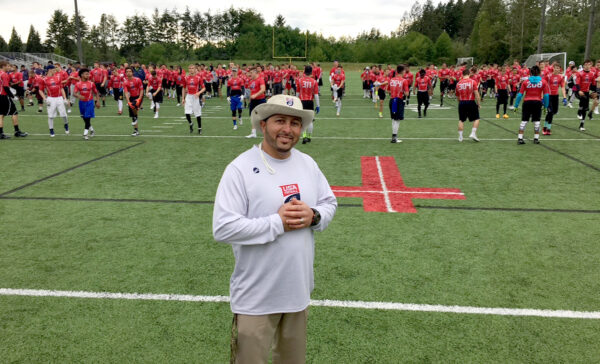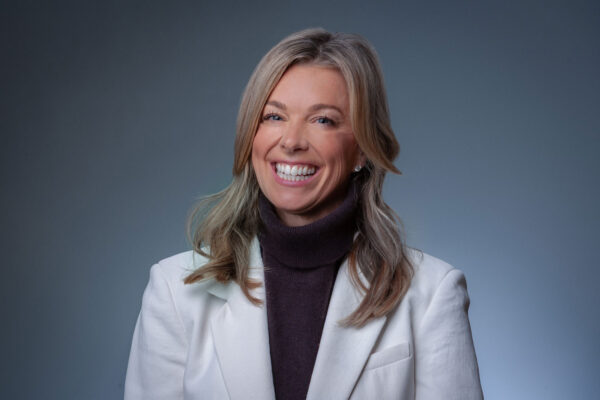Classes begin at the University of Washington Bothell on Sept. 29, but work to acclimate students to the new academic year begins many months in advance. For graduate students, the process starts as soon as they’ve been accepted into their program. In some cases, the first advising or orientation appointment takes place in June.
According to Michele Graaff, chair of the Graduate Resource and Development Council, graduate advisers this year also had to consider how best to shape welcome events given the current guidance for returning to campus after remote operations because of the pandemic. This is on top of the normal considerations about different programming timelines and student needs. Individual school orientations are also each designed to meet different student needs, and help every new graduate student start the year strong.
We asked advisers from each of our graduate programs to share some details of their onboarding process.
School of Business
Jerry Vasquez, academic adviser
My main goal is to help students understand their Master of Business and Master of Science in Accounting program requirements. After being accepted into a program, I send them academic planning materials and a student handbook to help them prepare for the orientation/advising group session. Sometimes I wonder if it’s too much, then I’ll hear from someone who writes, “Thank you very much for your wonderful introduction. You have provided a lot of information, which is very useful for us to dive into this program. I look forward to this exciting journey.”
I run the session in small groups (10 to 12 graduate students or less) and do a quick icebreaker to help students start feeling familiar with each other and build community. There is also ample time at the end for questions, and I typically stay later if students have questions about registration, need help with unique circumstances, etc.
After attending the session, they have the option for individual meetings or support prior to beginning their program. Expectedly, there are always a few folks who aren’t comfortable asking questions in a group of strangers, so I make sure they have the space and opportunity to ask for what they need to be successful.
One thing we’ve heard is that students want to start connecting with others right away, to get the getting-to-know-you part out of the way so they can get down to business — literally — when classes begin. We’re currently brainstorming ways for more engagement in the time between the orientation session and program start.
School of Educational Studies
Michele Graaff, graduate programs adviser
While it would be easier to have one Zoom orientation with all our incoming graduate students, I decided to go with multiple online sessions with up to three participants. This makes the orientation session shorter, which encourages engagement and allows for a more relaxed space for them to ask questions. From an adviser’s perspective, the smaller sessions help identify specific student needs.
The Master of Education program at UW Bothell, with its focus on equity and social justice in education, attracts a wide variety of students. They range from undergrads transitioning to grad school to working professionals who may have been out of academia for some time. Many M.Ed. students are returning to school after several years of teaching in a K-12 classroom, or they are career-changers, like one student who has a degree in computer science and has worked at Boeing and now wants to teach. The information they need is more specific. Our individualized sessions really help target questions and supports for a diverse cohort of grad students.
In addition to responding to specific questions, the small-group orientation sessions allow us to go over the basics, such as how to plan their schedule and where to find campus resources and funding assistance.
In the first full week of classes, students will attend a second online welcome event led by M.Ed. faculty. There, they will emphasize community building and what students can expect, especially how their program will look and advice on how they can be most successful.
School of Interdisciplinary Arts & Sciences
Miriam Bartha, director of graduate programs & strategic initiatives
This year, we have focused a little less on orientation and more on creating the balance between on-campus and online offerings. We’ve found that some students want more in-person classes than what we’ve offered after 18 months of being online, and some students want much less. Our faculty are working hard on how to teach in person while maintaining certain forms of distancing and pandemic protocols, and managing expectations from students and school and campus leadership.
We have three online orientations, although in general, there’s less weight on them than last year as students will have many opportunities to form community in their in-person classes.
We began a student and alumni ambassador program in 2013. Those ambassadors have been instrumental to both recruiting and supporting the entry and socialization of incoming students. That was true pre-pandemic, but it’s been especially so in the two disruptive years since the onset of COVID-19 and remote instruction, and now with the shift back to campus. They have been an integral part of orientations for all three IAS graduate programs. For new students, there is no wisdom greater than that of students who have gone before them and navigated graduate school and the program successfully. Our student ambassadors have also organized off-campus socials to connect students with each other and across entrance cohorts.
As a graduate program adviser, I always gain insight into the student experience from them, and I’m grateful for the compassion, wisdom and mentorship they so readily share.
School of Nursing & Health Studies
Celinda Smith, graduate nursing adviser
I focus on making sure the students have a comprehensive roadmap to day one so that the minute they step onto campus, they can focus on learning and begin the process of scholarship. I hold orientation/advising sessions throughout the summer, with two or three students per session. Before the pandemic I offered both in-person and online sessions, so it was an easy shift for me to hold them all online.
In addition to ensuring they are enrolled correctly and know how to access Canvas, I review logistics such as where to get their Husky card, how to pay for parking, key locations around campus and other information that will help them get acclimated. I then have a session on the services available at the library and Writing & Communication Center — including how to get help with research — and a workshop on graduate funding.
As we get closer to the start of the academic year, I hold a student mixer and also a welcome program where students, faculty and leadership can meet and get to know each other. These two events especially ease the transition to the first day in the classroom. Even on Zoom in 2020 and 2021, putting faces to names and seeing each other “in person” has been beneficial for everyone, and the students especially.
There is a lot involved to preparing grad students for their next step. And it’s all worth it, especially when I get feedback such as, “You answered questions I didn’t even know I had!” and “I want to thank you for all the work you are doing to prepare and guide us! I usually find that college students are left to figure stuff out on their own, but it seems different this time.”
I’m excited for the year and to work with our students, including a retirement-age, very enthusiastic student who said, “So many nuggets!” after an orientation session.
School of STEM
Megan Jewell, director of graduate academic services &
Suzanna Martinez, academic adviser
Our onboarding process focuses on guiding our students through the process of becoming successful graduate students and encouraging them to make connections that will support them as they strengthen and develop their intellectual and professional skills. We also combat common issues that affect graduate students, such as imposter syndrome, lack of direction and financial anxiety.
Once students accept the offer of admission, their adviser reaches out to them with helpful information about funding and resources, including an online self-directed orientation and an online group session. They also are encouraged to make an individual advising appointment. Leslie Cornick, our dean, sends them a welcome message as well.
We have three graduate degrees and two graduate certificates, and orientations vary slightly for each. This year, we had both online and in-person sessions, the latter following COVID-19 protocols, of course.
To support master’s degree students in pursuing a thesis or project, we offered an in-person event where students met with STEM faculty and leadership, and heard from a panel about research and tips for student success. They also had the opportunity to attend an online career orientation where they learned about job and internship strategies.
Students pursuing their graduate certificate in Software Design & Development were invited to an optional three-day online BootUp workshop to help them strengthen their skills and prepare them to work with Linux and C++.
At the last new welcome event for graduate students pursuing Computing & Software Systems, staff and faculty had this advice: “Sometimes we don’t want to ask question because we are afraid that everyone around us is just so smart … but they have the same questions, too” and “Make mistakes — that is the best part about learning…. because sometimes those mistakes make the most interesting questions,” and “Your graduate program is a marathon — not a sprint.”
Across the UW Bothell campus, these individualized approaches are one aspect of the careful planning needed to ensure early success within a student’s academic journey. The GRAD Council’s mission is to hold focus on the entire graduate student experience.
And through continued collaboration with the Admissions team and the vice chancellor for Academic Affairs, the GRAD Council is cultivating a strong community of graduate students, both inside and outside the classroom.


